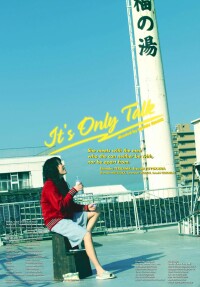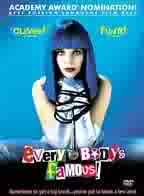"FLAGS OF OUR FATHERS"
Ryan Philippe, Adam Beach, Jesse Bradford, Barry Pepper, Neal McDonough, Paul Walker, Robert Patrick, Jamie Bell, John Slattery "A single shot can end the War"
Cinema 5, Rockwell

I read the book by James Bradley and Ron Powers, all 356 pages of it. I was totally engrossed by the detailed way it was written and absorbed every single well researched information provided in the book with gusto. I was lucky enough to find the book selling for only 30 Pesos in the National Book Store warehouse sale, last year. Therefore I was naturally curious how Clint Eastwood would interpret the story about the 6 flag raisers of Iwo Jima. Sad to say I left the theater, pretty disappointed by the film.
In the book, the author who is the son of John “Doc” Bradley (the Navy Corpsman) devoted many pages on the lives of the 6 young boys who were captured for posterity’s sake in that famous photograph. He traced their lives from their childhood growing up in dirt poor rural areas in the Midwestern part of the US during the depression era till the time they were drafted into the Marine Corps. He also went into great lengths to describe the horrific carnage that ensued on that tiny sulfur island. The brutal atrocities were very graphically documented that it made me cringe several times when I was reading the book. Then he shifts towards the part where the surviving 3 flag raisers go on a tour of the US selling war bonds while still traumatized and haunted by what they experienced on Iwo Jima. America needed them so they had to do their civic duty to help enrich the coffers of the US Treasury Department for a cause. That in some ways, they are remembering their fallen comrades by uplifting the dampened morale of the populace disillusioned by a war being fought in the Pacific.
The main theme of the film seems to be something more like heroism in the age of mass society. The film’s POV belongs to the young writer, who must piece together for himself the story of his own past. He explains that his father and friends never wanted to speak about the battle, first because it was so horrible that they wanted only to forget about it, but second because they didn’t really feel themselves to be heroes, felt unworthy of the title. “I was just a runner,” one tells a captive audience on Times Square, and “the real heroes are those who died in battle” we are told several times over. But, the war needs to be financed. Or is it the machine of war, the arms and death merchants, that really need more dollars? The film manages to be both heavy-handed and a bit sketchy on this point. It seems that Clint Eastwood wanted to make some political statement about the government using the young soldiers for propaganda’s sake by parading them shamelessly to generate more funds for the war as exemplified by this Newsweek article.
In the film, Eastwood chose to use the technique of splicing flashbacks with current scenes to narrate the story. He also used a monochromatic tone to gloss over the gory scenes. The battle of Iwo Jima is one of the bloodiest fights in the history of the US Army. But if you watch “Flags of our Fathers” the battle scenes are not that heart wrenching nor gory like the opening sequence of “Saving Private Ryan”. During the entire film, my sister had to ask me who was who, what was his ranking and where was he located during the actual raising of the flag. So before you had a sense of the 6 main characters, the director killed them off in a staged out of context manner. I know that everything happened so fast after the flag was raised. The entire Suribachi mountain exploded with gunfire artillery. Total mayhem and a bloody carnage followed.
“You can’t see their faces” the bitter mother of a fallen soldier remarks as she looks at the famous photograph. This could just as easily be said of the Japanese soldiers, who appear only for brief instants and more as silhouettes than anything else. There were 22,000 Japanese on Iwo Jima, and fewer than 1500 survivors (though we never see them). Indeed, we never get much sense of the Japanese as human beings in this film, and when this point is mixed with heavy CGFX, no matter how impressive and seamless the technology has become, it just slips into moments of feeling like a sophisticated video game. To be honest, it’s as if Eastwood *didn’t* want to make a war film, after all.
For the main conflict in the film isn't really with the Japanese (they never appear), but rather between the young soldiers and the American government. Their naivete is made quite clear early on, the realization that their buddy overboard will be left to perish at sea, the various conflicts they witness between the military commanders and the battle planners, etc., so we are well-prepared for the whole problem of the flag (two photos, not one, because some military brass wanted a souvenir, a trophy for his shooting lodge), the “buy bonds” road tour, their disillusionment as they try to act the part of the heroes, and all the questions they ask that are never answered.
The ensemble cast were ok but special mention goes to Adam Beach as the deeply troubled Pima Indian, Ira Hayes. He captured the angst ridden Hayes with such painful poignancy. I believe that Ryan Philippe as John Bradley came across as being too meek. From the book, the impression I got of Doc Bradley was a strapping lanky lad who was strong enough to carry wounded soldiers on his back. He was a very nurturing fellow who gained the respect of his comrades for saving a lot of lives on that ill fated island.
The film wasn't “bad enough” that we could take issue with its failings, but it didn’t really succeed in ways that could be praised, either. To be fair, I feel that I must wait and see “Letters from Iwo Jima”, the second film which presents the perspective from the Japanese side. It is now getting good reviews from the critics and has also been included among the top 10 films for 2006 in Time Magazine.
In conclusion, I believe that you are better off reading the book to understand the full extent of the damage that happened not only on that tiny sulfur island but also definitely in the deep recesses of the mind of the surviving soldiers. Their horrific experience haunted them till their last breath, unfortunately this film didn’t do justice to their gutting experience on the sands of Iwo Jima.


